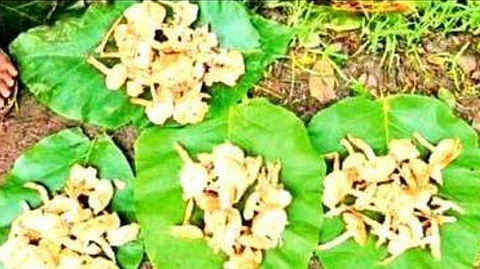

At 4:30 am, long before daybreak, Vindesh sets out into the forest. His goal – to find ‘olmi’ — the elusive, earthy wild mushrooms that sprout like secrets between moss-covered roots and under leaf litter.
For Vindesh, a 42-year-old local farmer, this ritual is older than memory. It is a thread that ties him to his father, and his grandfather before him — all of whom once trekked the same trails during the rains. But this year, his steps are uncertain.
Last week, the Forest Department announced a ban on wild mushroom collection, citing irreversible ecological damage, soil disruption and biodiversity loss. Overnight, a tradition carefully handed down for generations became illegal.
“We don’t go to destroy the forest,” Vindesh says. "The Forest Department says it will ban the cultivation and consumption of wild mushrooms, but I do not think our activities cause significant damage to the ecosystem. Our activities are limited to just two or three days,” he explained.
In Goa, where farming becomes tenuous during heavy rains, the short mushroom season offers more than nostalgia.
A handful of wild mushrooms can fetch hundreds of rupees in the local market — a lifeline for families with mounting bills and dwindling crop returns. For many, like Vindesh, it's the only cash income they can count on during the monsoons.
“It is a source of livelihood for some poor farmers. It’s not easy to get them. One has to visit the forests early in the morning and after harvesting, take them to the market to earn money. It is a labour-intensive job," he added.
The ban has now added another huge obstacle.
“Last year, I sold just six baskets. That money helped me buy school books for my daughter,” he says. “It may be modest to some, but it meant everything to us.”
Environmentalists argue that increasing demand has led to overharvesting and habitat disruption. They point to trampled forest floors, uprooted saplings and declining mushroom populations. Yet locals insist their methods are respectful — a quick morning harvest.
“We know the forest better than anyone else. Why would we ruin what we have carried out sustainably over generations?” questions Vindesh.
The conflict has left communities like his caught in the middle — between conservation goals and survival needs. With no clear alternative livelihood offered, the ban feels less like a policy decision and more like a severed lifeline.
As the debate continues, the question remains: can a balance be found between preserving the ecosystem and supporting the livelihoods of Goa's rural farmers?